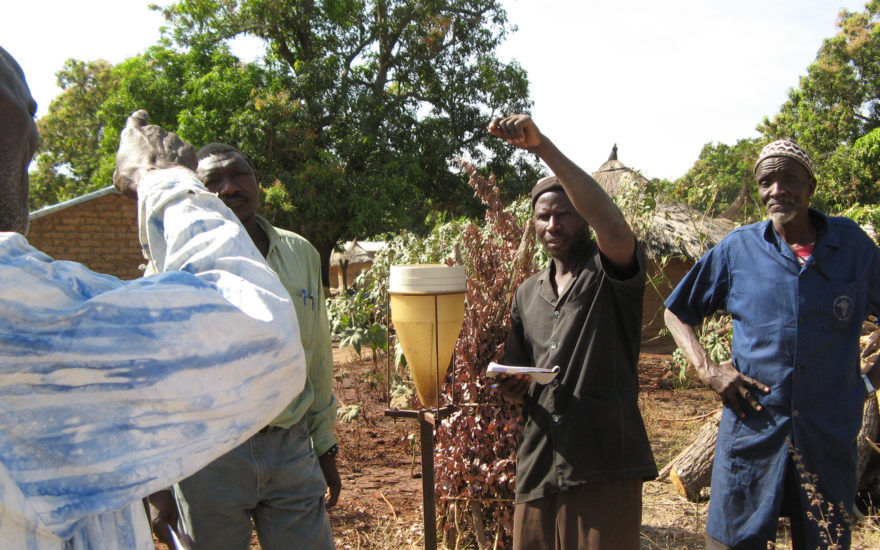
Timothy J. Downs
Professor

Co-create knowledge to tackle complex challenges
Right now, communities across the globe are facing existential threats to their ecosystems, with dire consequences for their health and wellbeing. The convergent challenges of toxic pollution, biodiversity loss, and climate change undermine our food, water, health, and energy systems, deepening social and economic inequities.
At Clark University, we are not daunted by these challenges – our creativity and resolve are inspired by them. Our Master of Science degree in Environmental Science & Policy will equip you with the knowledge and skills to make a difference.
The Environmental Science & Policy program will prepare you to enact just and sustainable solutions through collaboration and experiential learning. Our students learn by working alongside those most impacted by social and ecological inequities.
Grounded in rigorous environmental science, you will learn how to integrate diverse forms of knowledge, forge meaningful partnerships, and catalyze change in systems and structures.
Our curriculum focuses on the interaction between environmental knowledge, governance, and justice. You will learn to navigate and influence the complex governance structures that shape decision-making at local, national, and international scales. Internships, studio courses, and field work provide real-world experiences and insights.
STEM Designated Program. If you are an international student with an MS in Environmental Science and Policy, you may be eligible to work in the US for up to 36 months on Optional Practical Training (OPT).
Department of Sustainability and Social Justice
Our degrees inspire you to develop equitable solutions to urgent social, political, and ecological challenges. Through our program, students are equipped to help lead the building of a more just, sustainable, and climate-responsive world.
| Curricular Feature | 10-unit | 12-unit practice | 12-unit research |
|---|---|---|---|
| Required Core Courses: Degree Specific | 2 | 2 | 2 |
| Sustainability Studies | 1 | 1 | 1 |
| Social Change and Institutional Transformation | 1 | 1 | 1 |
Fundamental Skills:
|
2 | 3 | 1 |
| Methods of Inquiry & Subject Matter Electives | 1.5 – 2 | 1.5 – 2 | 2.5 – 3 |
| Intersectional Analysis | 0.5 – 1 | 0.5 – 1 | 0.5 – 1 |
| Principles and Ethics in Community Engagement (Common Seminar) |
0.5 | 0.5 | 0.5 |
Experiential Learning:
|
1 | 2 | 1 |
| Directed Study | 0 | 0 | 1 |
| Thesis writing | 0 | 0 | 1 |
10-unit track completed in three semesters (Fall or Spring start)
12-unit research track completed in four semesters, with students conducting primary research in the summer between their two years of study (Fall start only)
12-unit practice track completed in four semesters, with students engaging in a Global Learning Collaborative, either domestically or internationally (Fall start only)
Our alumni are advancing sustainability, social justice and climate-change responsiveness by innovating policies, practices, behaviors and technologies in civil society, governmental agencies, non-profit organizations, and the private sector.
Our faculty work at the leading edge of environmental science and policy. They publish in high-impact journals (e.g. GeoHealth, Human Ecology, Environmental Health Perspectives), receive financing from major funders (e.g. National Science Foundation, National Institutes of Health, Rockefeller Foundation), and share their expertise on boards and panels.
More importantly, they partner with impacted communities in their research and practice, working with local knowledge holders to understand complex challenges and co-create the capacity to respond – for a brighter future.
Relevant. Challenging. Transformative.

Timothy J. Downs
Professor

Yelena Ogneva-Himmelberger
Professor

Morgan Ruelle
Associate Professor